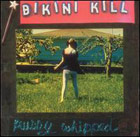You never knew you loved... Loving that lady punk sound of Riot Grrrl genre
Riot Grrrl music was pulled out of the punk scene by militant, radical feminists. It was far more than just a sound it was the musical face of an entire movement that featured indie artists, a DIY attitude, and a multitude of self-published zines.
The term itself is based on a quote from musician Jen Smith of Bratmobile, which was later reinterpreted as Riot Grrrl for the title of a zine created by members of both Bikini Kill and Bratmobile, two bands considered to be pioneers in the genre.
Riot Grrrl lyrics frequently reflected the political and activist messages of the musicians themselves, addressing issues of feminism, rape, and sexuality. Empowerment was also a key aspect, as performers sought to bring women in from the corners, both figuratively and literally. Bands often called female audience members to come right up to the front of the stage, supplanting the men who dominated the area at punk shows.
As often happens when that which is underground becomes popular, the message of Riot Grrrl music was watered down and commercialized as pop acts sought to capitalize on the idea of female empowerment. Bands like the Spice Girls brought “girl power” to the masses, but without the political convictions of the punk rockers who had been preaching it for almost a decade.
Most of the bands that traded on the name have since disbanded or moved on to new acts and styles, though generally retaining their feminist-inspired message. However, for a true Riot Grrrl experience, it's best to stick with the originals:
 Bikini Kill: Originally the title of a fanzine, its creators founded a band on the same name. One of their most popular tracks, and one that typifies their sound, is Rebel Girl from 1993's Pussy Whipped.
Bikini Kill: Originally the title of a fanzine, its creators founded a band on the same name. One of their most popular tracks, and one that typifies their sound, is Rebel Girl from 1993's Pussy Whipped.
Jack Off Jill: Leaning more towards gothic rock than punk, Jack Off Jill got their start under the wing of Marilyn Manson. Check out When I Am Queen from their second and final studio album, Clear Hearts Grey Flowers, released in 2000.
Sleater-Kinney: Starting later and lasting longer than most Riot Grrl-era bands, they survived the genre's decline in popularity and were garnering critical acclaim as recently as a few years ago. Listen to Little Babies from 1997's Dig Me Out.













